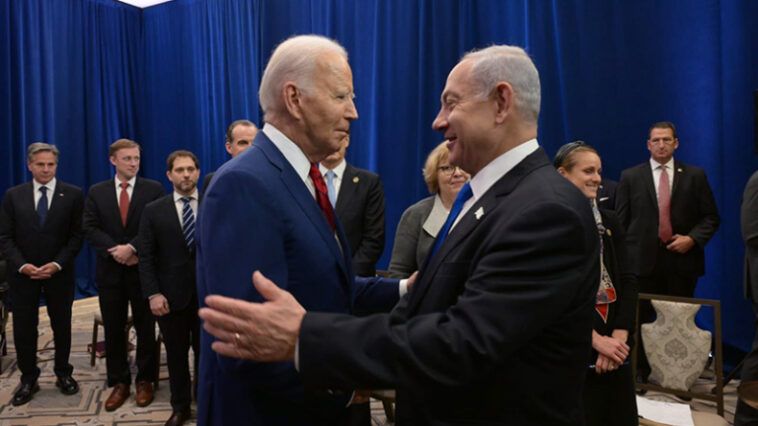The ultra-Orthodox Jewish organization in Israel known as Shas, recently publicized its intention to withdraw from the administration of Prime Minister Benjamin Netanyahu. Their choice to depart stems from the administration’s inability to enact a law providing ultra-Orthodox scholars with exemption from military service. This action amplifies the political strain on Netanyahu.
In a similar vein, just a few days prior, six individuals from the United Torah Judaism party, another ultra-Orthodox partner of the coalition, also left the government pointing at identical issues. This sequence of withdrawals leaves Netanyahu’s control in parliament compromised, posing substantial challenges to the functioning of his administration.
Opposition leader Yair Lapid contends the administration now finds itself without any legitimate mandate, prompting him to advocate for a fresh series of elections. To secure a subsequent term, in my understanding, he would have to meet several conditions – the liberation of hostages, the defeat of Hamas, and the achievement of regional stability.
Israel’s citizens are increasingly desiring an end to the ongoing war, a sentiment reflected in polls which highlight widespread approval for conclusion of the conflict should it result in the return of yet-to-be-freed captives. Nonetheless, Netanyahu remains firm in his stance, while expressing eagerness to finalize a hostage-ceasefire deal, he is unwilling to do so ‘at any cost’.
This resistance reflects not only Israel’s unwillingness to negotiate security matters but also indicates that any agreement Netanyahu might strike would be touted as a feat in front of the Israeli electorate. There is also a significant influence of hard-right members within Netanyahu’s administration adding further complications.
His ultranationalist partners in the coalition, Jewish Power and Religious Zionism, staunchly resist ceasing the war. They firmly maintain the necessity of combating Hamas till the conflict reaches its absolute conclusion.
Netanyahu’s electoral campaign would aim to highlight his achievement in ensuring regional safety. His proclamation in June about the successful war with Iran and the persistent series of strikes to establish Israel’s military superiority in the region underscore his position.
Analysts caution, however, that Netanyahu’s strategy seems more about personal political survival than achieving enduring peace for the Israeli and Palestinian people. As per the New York Times, it seems as though the Palestinian issue has been ‘kicked down the road’ once more.
An intrinsic part of Netanyahu’s strategy for declaring victory in Gaza involves endorsing a political resolution for Palestinians which concludes the current conflict without Israel making any substantial concessions. Under this proposed plan, the Gaza Strip would be sub-divided and demilitarised, with Israel sustaining security oversight of an extended duration.
Some regions of Gaza might be incorporated into Israel, with the remaining parts transitioned over to a temporary authority to project the semblance of an emerging Palestinian state. However, this could likely culminate in an intentionally devised disarray, coerced to compel as many Palestinians as possible to abandon the area.
This proposed solution would also omit serious negotiations on core issues such as borders, the status of refugees, and the city of Jerusalem which both Israel and Palestine lay claim to as their respective capitals. This implies the Palestinian leaders are very likely to veto any proposition of a truncated state.
Even if the Palestinian leaders were to accept such a proposal, the average Palestinian citizen may not perceive the peace terms as equitable. This could possibly ignite yet another cycle of violent conflict.
As Netanyahu mulls over the prospect of initiating an election, he is essentially authoring the forthcoming chapter in the history of Israeli-Palestinian tensions. The result of these strategic movements is shrouded in uncertainty.

